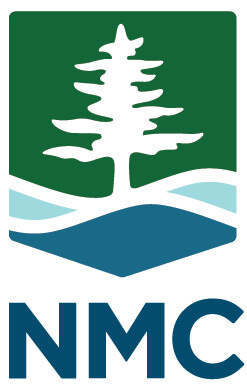General Education refers to the fundamental skills, knowledge, and values that prepare students for success in their academic, professional, and personal lives. At NMC, the faculty have chosen to focus on four core General Education Outcomes (GEOs):
-
- Communication (COM)
- Critical Thinking (CT)
- Quantitative Reasoning (QR)
- Social Responsibility (SR)
To ensure students are progressing and to identify areas where they might need more support, NMC assesses each of these outcomes every semester. Faculty whose classes support a general education requirement are asked to score at least one assignment using the appropriate general education rubric. This page serves as a guide for faculty in this process.
For more information, please see the NMC Staff Policy D-101.01 regarding GEOs.
Step 1: Discover which GEO your course supports.
Your course outlines, which you can find in the Academic Catalog, show which GEOs each course supports. The Curriculum Committee and Assessment Teams suggest that each course focus on supporting only one GEO at a time.
If your course outline needs to be updated, please work with your Academic Area Chair. You can make these updates in the Curriculum Information Management (CIM) platform.
Step 2: Review the GEO rubrics.
After you’ve identified which GEO(s) your course supports, your next step is to review the specific rubric for that GEO.
Each rubric outlines a set of criteria and defines different levels of student performance. You’ll use these criteria to evaluate your students’ work on a single assignment within Canvas, using a Canvas version of the rubric to measure their progress toward meeting the GEO.
Step 3: Consider the TER-N Assessment (for CT and/or QR GEOs).
The Test of Everyday Reasoning (TER-N) is a standardized test that can be used for courses supporting the Critical Thinking (CT) and Quantitative Reasoning (QR) GEOs.
This assessment is administered outside of Canvas. Faculty who choose to use the TER-N do not need to score GEOs within the Canvas platform.
According to Insight Assessment (2025), the TER-N “measures all the core reasoning skills needed for reflective decision-making and provides valid and reliable data on the critical thinking skills of individuals and of groups.”
Any faculty member interested in having their course participate in the TER-N assessment to fulfill their CT and QR responsibilities should contact the Assessment Team.
Step 4: Add GEOs to your Canvas course.
GEOs have already been set up in Canvas at the institutional level, so you don’t need to create them yourself from scratch. Instead, you’ll simply add these pre-existing outcomes to your course.
To learn how to do this, watch this short video tutorial.
Step 5: Add and assess GEOs using a Canvas assignment.
Once you’ve added the GEOs to your Canvas course, you can integrate them as criteria within your rubrics. A rubric can include both GEO criteria and your own custom criteria. You can also specify which of these criteria contribute to the total points for the assignment.
After creating your rubric, link it to the appropriate assignment. This allows you to use the rubric in Canvas SpeedGrader to efficiently and accurately score student work.
To see a step-by-step demonstration of this process, please watch the video tutorial.
Step 6: Add and assess GEOs using a Canvas quiz.
Canvas offers two quiz types: “Classic” and “New.” Both types allow you to assess GEOs, but they do so in different ways.
With both Classic and New quizzes, you can attach a rubric and manually score the GEO criteria using the SpeedGrader.
However, the “New” quizzes provide additional functionality, allowing you to align GEOs with either the entire quiz or with individual questions. In this method, Canvas automatically determines the student’s performance level on the GEO based on their quiz or question results.
To learn more about these different assessment methods, watch this video tutorial.
Step 7: Analyze section-level results using the Canvas Learning Mastery Gradebook.
The Learning Mastery Gradebook in Canvas is a powerful tool for instructors, administrators, and students. It helps you assess the outcomes being used in your courses and measure student learning.
Students can also access their own version of the Learning Mastery Gradebook to track their progress toward meeting GEOs. This feature is turned on by default in your course, but you can disable it if you choose.
Watch this video to learn more about using the Learning Mastery Gradebook.
Step 8: Analyze results using NMC’s Gen Ed Power BI Report.
The Gen Ed Power BI Report is an excellent tool for viewing GEO scoring results at an institutional level.
This report allows you to analyze data by academic area or program and filter results using various student demographics.
If you’re logged into an NMC network computer you can access the Power BI Report, but if you are remote, a VPN connection is required..
To learn more about using the Gen Ed Power BI Report, watch this video below.
Got Questions or Need Help?
Contact Ryan Bernstein (rbernstein@nmc.edu), NMC Curriculum & Instructional Designer, if you have questions or if you’d like help with any part of the General Education Outcomes process.

